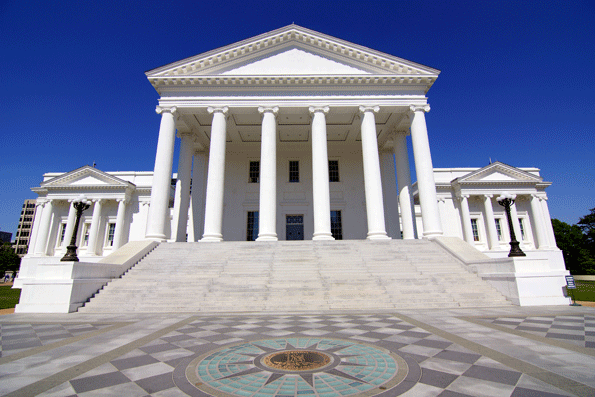
This was one of the most politically intense General Assembly sessions Virginia has seen in a long time. There were 19 new members elected to the House, which many believe was a backlash to the results of the Presidential election. A number of Democrats were victorious in their races without the financial backing of their caucus. There was an incredibly large volume of bills introduced. That number climbed north of 3,700 when typically, it rarely exceeds 3,000. Most bills placed a strong emphasis on how will it impact my caucus/race to re-election.
The profession of architecture has its hands full. This is especially the case for practitioners that do public work. A number of localities have adopted their own competitive negotiations processes for hiring professional services. The existing Code of Virginia allows this to occur to provide flexibility to the various sizes and complexities of local governments. As one may imagine, these local procurement processes ARE INDEED, requiring price during the proposal phase and there is not an effective way to monitor or track which localities are doing this. Localities are not required to submit their customized procurement process plans to the state, and as such, there is a high level of unawareness that this is even occurring. And if a legislator knows it’s occurring, the next question is, do they care?
More and more of you are sending me RFP’s that are requiring price in the proposal. It seems to be happening more so with the RFP’s issued by local School Boards.
AIA Virginia is working on a plan with our lobbying counsel, Williams Mullen, and our allied professional society the American Council of Engineering Companies Virginia to close this loophole. This will be more than a one-year effort. You are critical to the success of this plan.
Here are the initial components of our plan:
Get the Facts: Determine and confirm how many localities in Virginia are procuring professional services through their own customized procurement processes and requiring price as part of the proposal. As you can imagine, this is a gigantic task in itself.
Education: We are preparing for an intense amount of educational meetings with legislators out of session that will be led by Williams Mullen. I’m going to be calling some of you to attend these meetings.
Legislative Sponsor: Determine if there is a Legislative Committee Chairman that would be willing to support a change in the Code of Virginia to close this loophole. This individual would be instrumental in leading the process and getting enough votes for any proposal to pass.
Please do keep me posted on RFP’s that have this language as it will help us tremendously in this first stage. This is going to be a long tug-o-war. The number of lobbyists that represent local governments and their respective associations towers over that of design professionals. However, our membership is north of 2,300 – there is Strength in Numbers. And when we decide to put our pens and mouse down for a second to unite, we have the potential to be quite powerful.
Corey Clayborne, Executive Vice President of AIA Virginia, cclayborne@aiava.org
